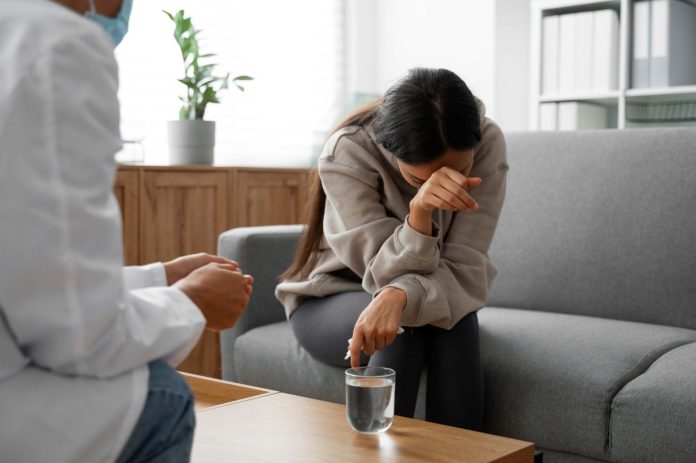Do movies portray mental health disorders accurately, or are they just for entertainment? Should there be follow-ups after intense mental health scenes? These were some of the key questions explored at the 6th Mental Health Film Festival, organised by Hamsa Media and Teeb TV in partnership with Taylor’s University’s Mental Health and Well-being Impact Lab.
The event showcased a selection of carefully curated local and international short films that used storytelling to highlight various mental health challenges and sparked important conversations about how mental health is represented in films, the challenges, stereotypes, and the impact these portrayals have on the audience.
Mental Health and Films, together – why does it matter?
The field of psychology, particularly the study of mental health has a dark past, rooted in times when people were confined to asylums, mistreated, and thought to be controlled by supernatural forces. We are now at the age of understanding neurobiological interpretations of human behaviours and psychological disorders. Regardless of the advancements that happened over a century, majority still fails to understand why the study of mental health is important. Although the collective effort and the recognition is there, we know that it is still insufficient, and we must look into all the available avenues to tackle the burden of mental health.
In fact, I can ask you a simple question “Why the study of mental health is important”? What exactly comes to your mind? Not a lot, other than able to seek help, or understand others. Let me ask a follow up question, why should you be concerned about your physical health? I am sure many reasons come to your mind within a split second. Understanding mental health is not just about getting the right treatment, because it directly impacts individual well-being, which leads to increased societal productivity, and overall public health. When we understand mental disorders, not only does it help to reduce stigma but it also gains the opportunity for early interventions, which is crucial to sustain a mentally healthy population which can lead to increased resilience, and social stability.
This is where films come into play. The media and films play a significant role in shaping public perceptions of mental health, because media has the power to either perpetuate harmful stereotypes or foster understanding and advocacy. So, responsible media coverage can drive societal change, normalise conversations, and promote mental well-being. Film is a universal language that lets us tell stories about our collective hopes and fears; to make sense of the world around us and the people around us. When it comes to mental health, film has the power to break silence and challenge stigma by showing the raw realities of struggle and resilience just to remind each other that no one is truly alone in their battles.
But since media is also a form of entertainment, we need to be mindful of what we consume when it comes to mental health related content. When media gets it right, it does something amazing: it makes people feel seen. It reminds them they are not alone, and that mental health struggles are just a part of life, not something shameful. Because we must remember, not everyone who gets nervous has anxiety disorder. Feeling sad for a day does not mean you are clinically depressed. And mental health isn’t just about self-care Sundays and bubble baths. So, while it’s great that people are talking about mental health more than ever, we need to make sure we’re getting our information from the right places. Because mental health isn’t just a movie plot, it’s something real, and it affects all of us.
Driving These Conversations
The correlation between mental health disorders and media needs to be highlighted and amplified. Such conversations were central during the panel discussion at the 6th Mental Health Film Festival which featured Dr Sam Jeng Mun, a clinical psychologist and Affezah Ali, a senior lecturer in psychology from Taylor’s University Mental Health and Well-being Impact.
The remaining panellists included representatives from the Malaysian independent film Industry such as Abdul Wahid bin Abdul Halim from Indie Media Network, and Dr Rozinor Razali from Rozinorazali & Co. Each panellist shared insights on how mental health representation in films can be improved while highlighting the power of storytelling in shaping public understanding of mental health.
A prime example is the recent Netflix series Adolescence, a gripping portrayal of the harsh realities surrounding mental health struggles, toxic role models, and the dangers of online radicalisation. More than just fiction, the series mirrors unsettling real-world trends, forcing audiences to confront the often-overlooked challenges faced by today’s teenagers. It vividly illustrates the brutal reality of growing up in the 21st century, where technology magnifies cruelty.
While the series doesn’t provide simple solutions, it highlights the importance of awareness, open communication, and parental involvement in shaping a teen’s formative years. By dramatising these struggles, Adolescence underscores the vital role of media in sparking meaningful conversations about the support young people and their families need in today’s increasingly complex world.
Dr Hiran Shanake Perera is the Deputy Director of the Mental Health and Well-being Impact Lab at Taylor’s University.




